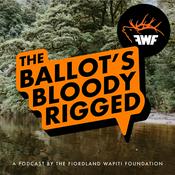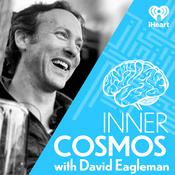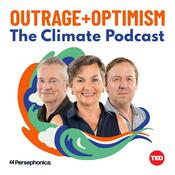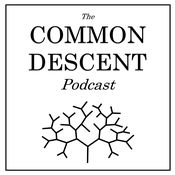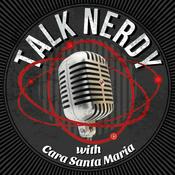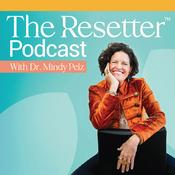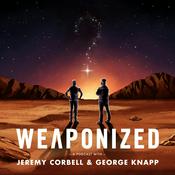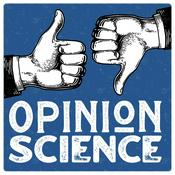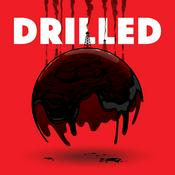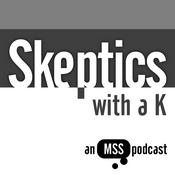75 episodes
- It’s been quite an eventful month, dear listeners. After a few flight cancellations, Democrats decided it was time to finally reopen the government. The House released a cache of Epstein files that name President Trump. And Zohran Mamdani has officially been named king of New York. In these turbulent times, we’re lucky to be joined by Jerusalem Demsas—journalist, grade A pundit, and Editor & CEO at The Argument magazine—who is here to talk Mamdani, liberalism, and much more.
The episode begins with reflections from Demsas and David about what Mamdani’s election means for New York. Will his affordability platform transform New York for the better? Or will his vision be foiled by New York’s entrenched and inefficient bureaucracy? Beyond the Big Apple, Sam asks for predictions on whether Mamdani (or his coalition) can scale to the national level. We then discuss the significance of the elections in Georgia, where Democrats notched a big victory in some less important state-wide elections. Finally, Sam asks Demsas to reflect on the future of liberalism in America. Should liberalism be canned for a progressive alternative, or is it, as Demsas will argue, the only way we can live together in a pluralistic country?
Most importantly, this episode gives Sam and David their annual opportunity to play political pundits. We hope you enjoy!
This podcast is generously supported by Themis Bar Review.
Referenced Readings
Abundance, by Ezra Klein and Derek Thompson
“How do we live with each other?”, by Jerusalem Demsas
“This Is the Way You Beat Trump — and Trumpism”, by Ezra Klein
Liberalism Against Itself, by Samuel Moyn
In this episode, there was a general skepticism that Mamdani could lead the Democratic party at the national level. So, in this episode’s spirit of hot-take punditry, who is your pick to be on the top of the Democratic ticket in the 2028 election?
Sam: No clue. We are in the democratic equivalent of Deuteronomy 18 territory: a prophet will be raised up from among the people, but we don’t know who it is yet. Dan Osborn?
David: I’m hoping not for a prophet, but for someone who can fulfill Biden’s promise to make national politics less interesting and, as we suggest in the episode, return a little power to Congress even if it is not in his/her short-run political and policy interests. A midwestern governor or western senator, perhaps. But I’m afraid it’s going to a battle of meme lords and discourse makers. - As one New York political dynasty comes to a close and as the government shutdown rampages on, it’s only fitting to have Natasha Piano on the pod to discuss elitism and the crisis of American democracy. Natasha Piano is an Assistant Professor of Political Theory in the Department of Political Science at UCLA. Piano joins us this week to discuss her new book, Democratic Elitism: the Founding Myth of American Political Science. In her book, Piano offers a revisionist intellectual history of three Italian (or Italian-adjacent) thinkers – Pareto, Mosca, and Michels. These three thinkers, Piano argues, have been violently misappropriated by American political scientists of the likes of Robert Dahl. Piano aims to show that Pareto, Mosca, and Michels are better understood as democratic theorists of elitism–not elitist theorists of democracy.
Before Piano can officially set the record straight, she has to take on a barrage of skeptical questions from Sam and David. David asks whether American political science really misappropriated these three thinkers or rather borrowed from them for their own purposes. After an extended excursus exploring how best to interpret Pareto’s and Schumpeter’s political thought, Sam then presses Piano to explain the contemporary relevance of her three thinkers’ work. In response, Piano both makes the case for not conflating democracy with elections and warns of the plutocratic threats facing electoral democracy. We hope you enjoy!
This podcast is generously supported by Themis Bar Review.
Referenced Readings
Capitalism, Socialism, and Democracy, by Joseph Schumpeter
A Preface to Democratic Theory, by Robert Dahl
Who Governs? Democracy and Power in the American City, by Robert Dahl
The Discourses, by Niccolò Machiavelli
This episode discussed Robert Dahl’s book on how democracy works in our very own New Haven, Connecticut. So who actually governs New Haven?
Sam: Whoever will have the courage to resurface the Wilbur Cross tennis courts, while driving out the pickleball interlopers.
David: It’s hard to say. Overlapping groups of elites, only some who are members of the New Haven Lawn Club? The ghost of Frank Pepe? The Jitter Bus guys? If we’re voting, I’d give my support to anyone who promises to bring back The Beast of New Haven, a professional hockey team famous for having the ugliest logo and mascot in all of sports. - This week, we descend from the ivory tower onto the beaches of Martha’s Vineyard for a discussion of the historical significance – and contemporary relevance – of the Garland Fund, the million dollar fund at the epicenter of the early Civil Rights movement. We’re thrilled to welcome our colleague John Witt, the Allen H. Duffy Class of 1960 Professor of Law at Yale Law School, to join us for a celebration of his new book, The Radical Fund: How a Band of Visionaries and a Million Dollars Upended America.
We begin the pod by exploring the causal impact of the Garland Fund. Witt argues that the Fund is both a window that provides a new angle with which to view the left liberal social movements of the 1920s and 30s and a workshop that created the conditions under which civil libertarians, civil rights organizations, and union leaders were forced to come together to have conversations about how to spend the Fund’s limited resources. Sam then asks Witt to explain the extent to which his book aims to offer a revisionary account of liberal progress in the early 20th century. After a brief detour to discuss the heroes and villains of the book, David and Sam both press Witt to opine on the contemporary relevance of the story of the Garland Fund. The show concludes with reflections on Abundance bros, the Debt Collective, philanthro-capitalism, and nonprofit tax exemptions. We hope you enjoy!
This podcast is generously supported by Themis Bar Review.
Referenced Readings
Simple Justice by Richard Kluger
The NAACP's Legal Strategy against Segregated Education, 1925-1950 by Mark Tushnet
The Lost Promise of Civil Rights by Risa Goluboff
Civil Rights and the Making of the Modern American State by Megan Ming Francis
The Taming of Free Speech by Laura Weinrib
Winners Take All by Anand Giridharadas
What are Sam & David’s favorite restaurants in New Haven?
Sam: It’s pretty slim pickings tbh - I guess there’s a case for Pasta Eataliana (which should definitely change its name)?
David: I assume we’re skipping the classic apizza joints? If we leave Pepe’s, Sally’s, Modern and Zuppardi’s to the side, my favorites are the terrific Fair Haven Oyster Co. and Tavern on State. Also, I recommend encouraging Sam to bake for you! Best desserts in town! - It’s been a long (and eventful) summer. But the leaves are just beginning to turn and there’s a cool breeze in the air, which means it’s time for a new season of Digging a Hole! We kick off this season with a wide-ranging discussion on the limits of executive power, the role of courts in checking the executive branch, and what progressives should do after Trump 2.0. To help guide us through these thorny issues, we’re thrilled to welcome to the pod Bob Bauer, Professor of Practice and Distinguished Scholar in Residence at NYU School of Law.
In 2020, at the end of Trump 1.0, Bauer, with Jack Goldsmith, authored After Trump: Reconstructing the Presidency. Bauer and Goldsmith’s title did not prove prescient, however, and the second Trump administration presents a bevy of new challenges to our constitutional system. We begin the episode by discussing the expansion of executive authority and the extent to which the Supreme Court is responsible for enabling the second Trump administration. Sam and David query when and how we can know whether the Court is rolling over for the administration. Sam then continues prosecuting the case against courts generally, and Bauer parries by explaining why it remains necessary for progressives to engage with the courts. David closes the pod by teasing out Bauer’s views on whether progressives should change their approach to election law. We hope you enjoy!
This podcast is generously supported by Themis Bar Review.
Referenced Readings
After Trump by Bob Bauer and Jack Goldsmith
“Progressives and the Supreme Court” by Bob Bauer
“Election Law for the New Electorate” by Nicholas Stephanopoulos
NYU Law Democracy Project
What are Sam & David reading?
Sam is reading Sarah Bilston’s The Lost Orchid.
David is reading Vladimir Kogan’s really amazing new book No Adult Left Behind: How Politics Hijacks Education and Hurts Kids - We’ve had a lot of fun this spring, but a sweet summer scent is on the wind, and so we’re going to have to wrap up another successful season of Digging a Hole with today’s episode—it’s a real clambake. Courts have paid a lot of attention in recent years to what the executive branch can and can’t do: non-delegation, major questions, student loans, DOGE. The question of what the federal government as a whole can and can’t do, on the other hand, has been settled for a while. Settled, but wrongly, says our guest. Arguing against the weight of constitutional law, history, and memory, we’re delighted to welcome to the pod Richard Primus, the Theodore J. St. Antoine Collegiate Professor of Law at the University of Michigan, to discuss his Straussian reading of the Constitution and new book, The Oldest Constitutional Question: Enumeration and Federal Power.
We start off the episode by defining enumerationism, what it is as a theory, and whether or not it works as a matter of practice. Primus tells us about how Congress’s enumerated powers are important to both federalism and the separation of powers, but shouldn’t actually limit the authority of the federal government. Sam and David jump in with questions about whether a legal theory taught to first-year constitutional law students actually does the work in constraining the exercise of power by the federal government. In response, Primus dives into the structural and historical underpinnings of his pro-federal government argument and ends with his hope for constitutional change. We hope you enjoy.
This podcast is generously supported by Themis Bar Review.
Referenced Readings
“A Question Perpetually Arising: Implied Powers, Capable Federalism, and the Limits of Enumerationism” by David A. Schwartz
More Science podcasts
Trending Science podcasts
About Digging a Hole: The Legal Theory Podcast
Yale Law School professors Samuel Moyn and David Schleicher interview legal scholars and dig into the debates heard inside law school halls.
Podcast websiteListen to Digging a Hole: The Legal Theory Podcast, The Infinite Monkey Cage and many other podcasts from around the world with the radio.net app
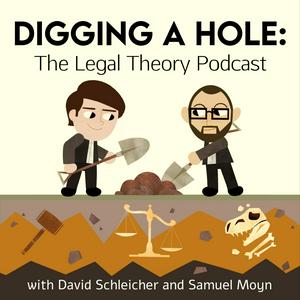
Get the free radio.net app
- Stations and podcasts to bookmark
- Stream via Wi-Fi or Bluetooth
- Supports Carplay & Android Auto
- Many other app features
Get the free radio.net app
- Stations and podcasts to bookmark
- Stream via Wi-Fi or Bluetooth
- Supports Carplay & Android Auto
- Many other app features


Digging a Hole: The Legal Theory Podcast
Scan code,
download the app,
start listening.
download the app,
start listening.











